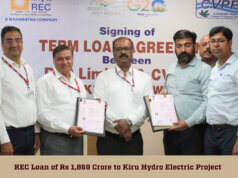Shortage of skilled manpower coupled with competition from multinational companies and large business houses pose significant challenges for small and medium enterprises based in Ahmedabad, Gujarat, reveals a recent report launched by Dun & Bradstreet India in association with Federal Bank and Times Group.
Titled ‘SME Connect Series 2014: Ahmedabad,’ the report is the fifth in a series of reports dedicated exclusively for SMEs in the country. It focuses on SMEs based in Ahmedabad offering insight in terms of their business perspective, financing requirements and preferences and outlook on growth prospects among others.
In addition to developing a single point reference document that highlights the operational aspects, trends, challenges and benefits of operation in Ahmedabad, the report provides insights that will help enterprises take informed decisions.
Companies from across varied sectors with a total income of less than Rs. 100 crore as on FY14 were surveyed for the report. Those engaged only in trading activities were excluded.
Ahmedabad is the largest district in Gujarat and also the main business and commercial city of the state. It is an industrial base for sectors such as chemicals, textiles, drugs and pharmaceuticals, and agro and food processing industries. Textiles and chemicals have been the major sectors of investment and employment in Ahmedabad since 1980. There are 12 main industrial estates, 12 SEZs, and 10 industrial parks/developers in the district. The industrial development is restricted to the surrounding areas of the metropolitan city of Ahmedabad and certain towns of the district. As of June 2013, there were around 59,927 micro, small and medium enterprise units in Ahmedabad.
The survey attempted to understand the major challenges faced by SMEs operating in Ahmedabad. Shortage of skilled manpower was cited as the major challenge hindering growth by 23 per cent respondents. Around 20 per cent respondents mentioned competition as the major challenge, while around 16 per cent said higher costs was the major challenge. Around 9 per cent respondents said they did not face any challenges.
The survey reveals that Gujarat is considered as the state offering the best business environment in the country. It figured in 77 per cent of the responses to a question on which state offered the best business environment. Around 69 per cent of the overall respondents said that Gujarat alone was the only state offering the best business environment. Around 17 per cent of the respondents said Maharashtra and other states offered the best business environment. Around 5 per cent of the respondents said Maharashtra alone provided them with the best business environment.
Around 81 per cent of the respondents who participated in the survey earned income below Rs. 5 crore in FY14; around 16 per cent of the respondents earned income between Rs.5 crore and Rs. 50 crore; and only 3 per cent of the respondents earned income between Rs. 50 crore and `100 crore in FY14.
Around 63 percent respondents reported export income during FY14. Among the manufacturing companies surveyed, around 73 percent respondents earned export income, while a much lower percentage of around 35 percent earned export income among the service SMEs. Around 39 percent respondents earned export income accounting for less than 10 percent of total income during FY14. Among the manufacturing SMEs, the share was higher at 44 percent.
Banks emerged as the most preferred financing option for entrepreneurs in Ahmedabad. Around 66 per cent respondents mentioned banks as the most ideal financing option while around 11 per cent respondents each mentioned own savings and government agencies as the most ideal financing option.
Among the service SMEs, around 76 per cent preferred banks as the most ideal financing option, with 47 per cent preferring public sector banks. Around 18 per cent of the service SMEs mentioned government agencies as the most preferred financing option, while around 6 per cent preferred private equity funds. Among the manufacturing SMEs, around 62 per cent preferred banks as financing option, while around 16 per cent mentioned own savings.
Given the current economic climate and business environment, the survey tried to understand the expectations of the respondents with respect to Return on Investment over the next two years. Of the surveyed entities in Ahmedabad, around 40 per cent respondents expected to earn RoI of 10-20 per cent over the next two years, while around 24 per cent respondents expected RoI in the range of 20-30 per cent. Around 17 per cent respondents expected RoI of around 17 per cent. The service SMEs were more optimistic with only around 6 per cent of the entities expecting ROI of less than 10 per cent per annum over the next two years.
Among policy initiatives that could drive growth of the SME sector, around 31 per cent respondents mentioned an industry friendly tax policy. Around 13 per cent respondents said initiatives to ease financing and funds availability would drive industry growth.
Higher assistance from local government bodies/SME centers, associations, and SME friendly policies were mentioned as the two most important initiatives for development of the SME sector, with 45 per cent and 43 per cent respondents to the survey mentioning them, respectively. Around 36 per cent respondents mentioned improved access to finance and around 34 per cent mentioned initiatives for foreign collaborations as the important initiatives required for development of SMEs.












I fully endorse the view of Mr. Tyagi. You need to pay for quality skilled workforce and at the same time give them the resources to enjoy the work. If you provide better quality machines for testing and R&D, you will get better returns and in turn you will get highly skilled workforce. Merely complying with their basic needs is not going to give the growth rate to SMEs.
I fully agree with the view of Mr.Tyagi,Not only the payin g of better wages the indutries need to get updated good ,Quality technical machineries which may be initial investment and will pay in the long run. If you dont have proper machineries you cant get a skilled workforce.
Even if the skill workforce is made available other than wages/food without better quality machines for quality/testing/R&D to create an atmosphere for their personell growth, SME’s
will not grow.
Skill shortage is a big drama. irrespective of whatever high level of skill one has, the company specific short basic training is always required this should not be treated as skill shortage. Further, manpower shortage should be considered for the categories where the industry is ready to pay the respectable living wages. If the industry want to pay enough only for minimum nutrient for belly to dwell in slum, without medical facilities to “Family’ , expect education at free government school and expect to work for more than statutory hours and call it skill shortage it is misinformation. Otherwise let industry pin point which skill they need and what they are ready pay for that.